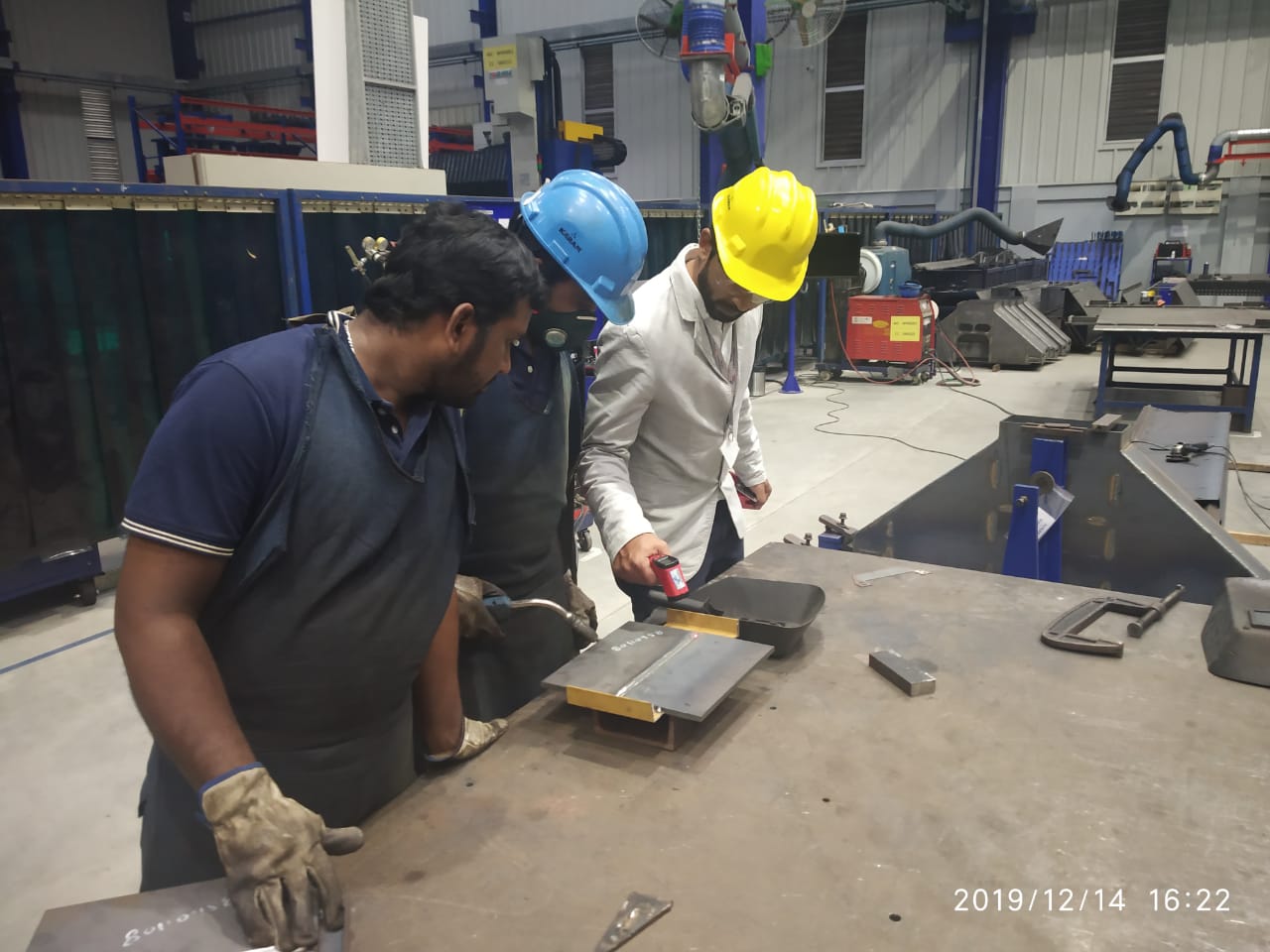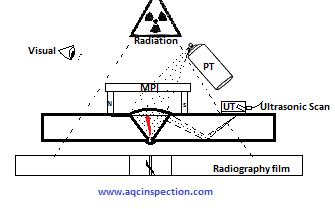Why Pick Professional Welding Inspection Madison for Your Projects
Why Pick Professional Welding Inspection Madison for Your Projects
Blog Article
The Importance of Thorough Welding Examination in Industrial Applications
In the world of commercial applications, the importance of precise welding inspection can not be overstated. As we check out the complex advantages of diligent welding evaluations, one need to consider the broader effects on safety, integrity, and cost-effectiveness in commercial operations.
Enhancing Structural Stability
When it comes to welding assessment in industrial applications, enhancing architectural honesty is vital. The primary objective of welding examination is to guarantee that the welds are qualified of birthing the expected lots and stresses they will certainly encounter in solution. This entails an extensive analysis of the welds' dimensions, alignment, and total top quality, ensuring they satisfy the specified requirements and codes. Exact inspection methods, such as aesthetic inspection, ultrasonic testing, and radiographic screening, are important in determining problems that might endanger the structure's safety and functionality - Welding Inspection Madison.
The significance of preserving structural integrity in bonded structures can not be overemphasized. Poorly executed welds can result in tragic failings, leading to pricey repairs, downtime, and even endangerment of human lives. Examiners play an important duty in the lifecycle of industrial components, providing guarantee that the welding procedure provides the preferred strength and sturdiness.
In addition, progressed modern technologies, such as phased array ultrasonic screening and digital radiography, deal enhanced capabilities in identifying possible weaknesses, enabling restorative steps prior to concerns rise. By prioritizing the stability of welds with meticulous examination, sectors can ensure functional effectiveness and extend the durability of their facilities.
Identifying Welding Defects
Determining welding problems is an essential facet of making certain the security and reliability of welded structures. These flaws can endanger the integrity of the entire setting up and, if left unaddressed, may cause catastrophic failures. Usual welding flaws include porosity, splits, insufficient fusion, and damaging. Each of these flaws occurs from certain causes, such as improper welding strategies, contamination, or poor warmth control.

Knowledgeable inspectors use both aesthetic examination and advanced non-destructive testing (NDT) methods, such as radiographic or ultrasonic testing, to find these problems. The timely recognition and correction of welding defects are important to keep the structural integrity and long life of industrial elements.
Ensuring Compliance Specifications
Compliance with recognized criteria, such as those offered by the American Welding Culture (AWS) and the International Company for Standardization (ISO), makes sure that welds fulfill minimal safety and quality demands. These standards encompass a large range of requirements, consisting of product specs, welding procedures, and qualification of welders.
Routine audits and examinations are necessary in validating compliance. Examiners have to have an extensive understanding of the appropriate criteria and be adept at making use of numerous non-destructive screening (NDT) methods to assess weld top quality. By making certain that welding practices straighten with compliance requirements, firms minimize the risk of non-conformity, which can result in legal liabilities and safety threats.
Furthermore, preserving conformity not just safeguards structural honesty however also enhances a company's credibility in the market. Stakeholders and clients are most likely to count on firms that click this link constantly demonstrate a commitment to quality and safety and security with rigorous conformity. Hence, guaranteeing conformity standards is a crucial part in the effective implementation of welding in commercial applications.
Reducing Upkeep Prices

The application of advanced non-destructive testing (NDT) methods, consisting of ultrasonic, radiographic, and magnetic fragment inspections, boosts the capability to find subsurface problems without endangering the structural stability of elements. By utilizing these strategies, industries can significantly expand the life span of their tools, minimizing downtime and the associated economic burden of upkeep activities.
Additionally, a durable welding examination regime supports the optimization of maintenance routines, changing from reactive to predictive maintenance strategies. This proactive strategy not only cuts unforeseen failings yet likewise streamlines resource allowance, ensuring that upkeep initiatives are concentrated and efficient. Inevitably, the great site investment in strenuous welding assessment is countered by the substantial savings realized through reduced upkeep demands, contributing favorably to the general functional effectiveness of commercial ventures.
Improving Security Steps
Welding inspection plays a vital function in this context, as it makes certain that all links and joints fulfill rigorous safety requirements. Comprehensive examinations aid determine flaws such as fractures, porosity, or incomplete fusion that might compromise architectural stability.
Techniques like ultrasonic testing, radiographic screening, and magnetic particle evaluation allow for in-depth evaluation without harming the framework. Applying a robust quality control system that includes regular training for inspectors and welders ensures adherence to established safety criteria.
Last but not least, cultivating a culture of safety within the organization stresses the value of detailed welding evaluations. Encouraging open communication and partnership amongst designers, welders, and examiners adds to a common dedication to safety and security excellence. Welding Inspection Madison. In doing so, sectors can secure their procedures, shield personnel, and keep public count on

Final Thought
Detailed welding examination is essential in commercial applications, dramatically improving structural stability and dependability. Eventually, the thorough execution of welding inspections plays an important duty in maintaining functional effectiveness and security in industrial settings.
As we check out the diverse advantages of thorough welding examinations, one must consider the wider implications on safety, integrity, and cost-effectiveness in industrial procedures.
The primary goal of welding inspection is to ensure that the welds are capable of bearing the expected tons and anxieties they will experience in service. Efficient welding evaluation plays an important role in lessening these expenses by have a peek at this website ensuring the honesty and long life of welds, therefore reducing the threat of premature failings.Comprehensive welding examination is indispensable in industrial applications, considerably improving structural stability and dependability. Inevitably, the attentive execution of welding evaluations plays an essential function in keeping functional performance and safety and security in industrial settings.
Report this page